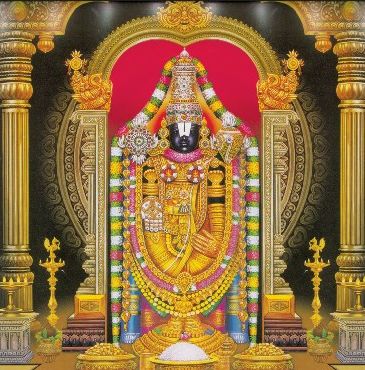Gita : Ch-13. Slo-8 to 12. Slokams and combined - Discussion-10.
13/04/2017
Srimad Bhagavad-Gita :
Chapter-13.( ( Kshetra-kshetrajna-vibhaga-yogam )
Slokam-s. 8 to 12.
(8)
amanitvamadambhitvam ahimsa kshantirarjavam,
acaryopasanam saucam sthairyamatmavinigrahah.
amanitvam = humility;
adambhitvam = pridelessness;
ahimsa = nonviolence;
kshantih = tolerance;
arjavam = simplicity;
acarya-upasanam = approaching a bona fide spiritual master;
saucam = cleanliness;
sthairyam = steadfastness;
atma-vinigrahah = control;
(9)
indriyartheshu vairagyam anahankara eva ca,
janmamrtyujaravyadhiduhkhadoshanudarsanam.
indriya-artheshu = in the matter of the senses;
vairagyam = enunciation;
anahankarah = being without false egoism;
eva = certainly;
ca = also;
janma = birth;
mrtyu = death;
jara = old age;
vyadhi = disease;
duhkha = distress;
dosha = fault;
anudarsanam = observing;
(10).
asaktiranabhishvangah putradaragrahadishu,
nityam ca sama-cittatvam ishtanishtopapattishu.
asaktih = without attachment;
anabhishvangah = without association;
putra = son;
dara = wife;
graha-adishu = home, etc.;
nityam ca = also;
sama-cittatvam = equilibrium;
ishta = desirable;
anishtah = undesirable;
upapattishu = having obtained;
(11)
mayi cananyayogena bhaktiravyabhicarini,
viviktadesasevitvam aratirjanasamsadi.
mayi = unto Me;
ca = also;
ananya-yogena = by devotional service;
bhaktih = devotion;
avyabhicarini = constant, unalloyed;
vivikta = solitary;
desa = place;
sevitvam = aspiring;
aratih = without attachment;
jana = people in general;
samsadi = mass;
(12)
adhyatmajnananityatvah tattvajnanarthadarsanam,
etat jnanamiti proktam ajnanam yadatonyatha.
adhyatma = pertaining to the self;
jnana = knowledge;
nityatvam = eternity;
tattva-jnana = knowledge of the truth;
artha = the object;
darsanam = philosophy;
etat = all this;
jnanam = knowledge;
iti = thus;
proktam = declared;
ajnanam = ignorance;
yat = that which;
atah = from this;
anyatha = others.
Discussion - 10. 20 virtues :
1.
Amanitvam is absence of desire for honour due to reverence and humilty. Adambhitva is lack of pride due to simplicity and absence of duplicity. Ahimsa is non-violence to others by thought, word or action. Ksantih is tolerance, forbearance even when antagonised. Arjavam is sincerity and straightforwardness even to those duplicitous. Acaryopasana is unmotivated devotion to the guru who imparts spiritual knowledge. Saucam is purity in thought, word and action to enable to qualify for spiritual knowledge. Sthairya is unwavering faith in the spiritual masters teachings from the Vedic scriptures.
2.
Atma-vinigriha is self control by withdrawing the mind from pursuits other than spiritual. Vairagyam is renunciation of activities unrelated to the soul. Anahankara is absence of false ego or misidentification of the physical body as the self. Anudarsanam is reflecting on the evils of birth and inevitable old age, disease and death. Asakti is detachment from over attraction to wife, sons and family members. Anabhisvangah is neutrality in both happiness and distress.
3.
Sama-citta is equipoise of mind in both favourable and unfavourable circumstances. Bhaktih is rendering exclusive loving devotion to the Supreme Lord Krishna. Vivikta-desa-sevitvam is fondness for solitary places out in nature for inhabiting. Adhyatma-jnana-nityatvam is to be permanently established in knowledge of the soul. Tattva-jnana-darsana is contemplating the spiritual teachings of the Vedas to gain insight. Jnana refers to that knowledge where one can achieve atma tattva or realisation of the soul.
4.
The aggregate of imbibing these 20 most excellent attributes facilitates atma tattva within the jiva or embodied being. Whatever is contrary and opposed to these 20 attributes is to be considered ignorance and detrimental to any real knowledge of the soul.
Next the nature of the kshetra-jna or knower of the field will be delineated by Lord Krishna as was alluded to in Chapter 10, Slokam 3 where LORD states: One who knows Me.
THE END
NEXT : Slokam-13.
To be continued ....




Comments
Post a Comment